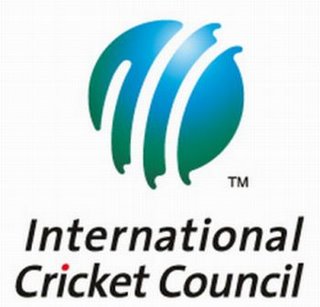CC's Chief Executives Committee (CEC) has reiterated its commitment to the Decision Review System becoming mandatory in international cricket, recommending it to the Executive Board following fresh and successful testing of DRS technology. However, the BCCI - which has long opposed DRS - immediately responded by saying its stand remained unchanged, putting the proposal into serious doubt.
For the record, the ICC also decided to include Hot Spot cameras as part of the mandatory requirements for the DRS; they had been made mandatory following the 2011 ICC conference in June, but weretaken off the list in October.
The recommendation to the ICC Board came with one rider: the application will be "subject to the Members' ability to finance and obtain the required technology."
The CEC stated it was "satisfied" with the improvements made over the two key components of DRS technology. These include the new Hot Spot cameras as well as the independent ball-tracking research conducted by Dr Ed Rosten, a Cambridge University department of engineering expert in computer-vision technology. Rosten, the ICC said, had "tested the accuracy and reliability of ball-tracking in a recent Test series and concluded that the results were 100% in agreement with the outcomes produced from his assessments."
this was undermined by the BCCI's statement, which came within a couple of hours of the ICC's decision. "The BCCI continues to believe that the system is not foolproof," it said. "It also sticks to its view that the decision on whether or not to use the DRS for a particular series should be left to the boards involved in that series."
The reaction contradicted the wording of the ICC's release, which said recommendations by the CEC were said to be "unanimous". Yet it is understood that the CEC had been explained India's "unreadiness" to use the technology as a whole, and the matter would rest with the ICC Board when it meets on Tuesday and Wednesday.
The BCCI have been the strongest opponents of the DRS, its president N Srinivasan saying that the system would only be supported when it was "100 percent error free." Srinivasan, who arrived in Kuala Lumpur by chartered flight, was not required to be present at the CEC meetings - the BCCI was represented by secretary Sanjay Jagdale - but will be sitting in on the ICC Board when the CEC's recommendations are discussed.
The member nations supporting the DRS are also believed to have told the ICC that they would like it to sort out the grey areas - over the nature, quantity and costs of the DRS - through the selling of centralised global DRS rights to a single sponsor. Most full member nations have indicated that they would like the ICC to take ownership of the DRS, as it has of neutral umpiring
it is a suggestion that will give the technology providers of DRS technology some solace, as the technology upgrade required to become part of the game's rule book is far more expensive and sophisticated than the original aim with which the technology was provided to cricket broadcasters: to merely be part of the television-watching experience
The ICC's Executive Board, which will study these recommendations, comprises the chairman or president of each of the 10 Full Member nations, plus three elected Associate Member representatives, the ICC President who chairs proceedings, the ICC Vice-President, the chief executive and then by invitation, the ICC principal advisor.


No comments:
Post a Comment